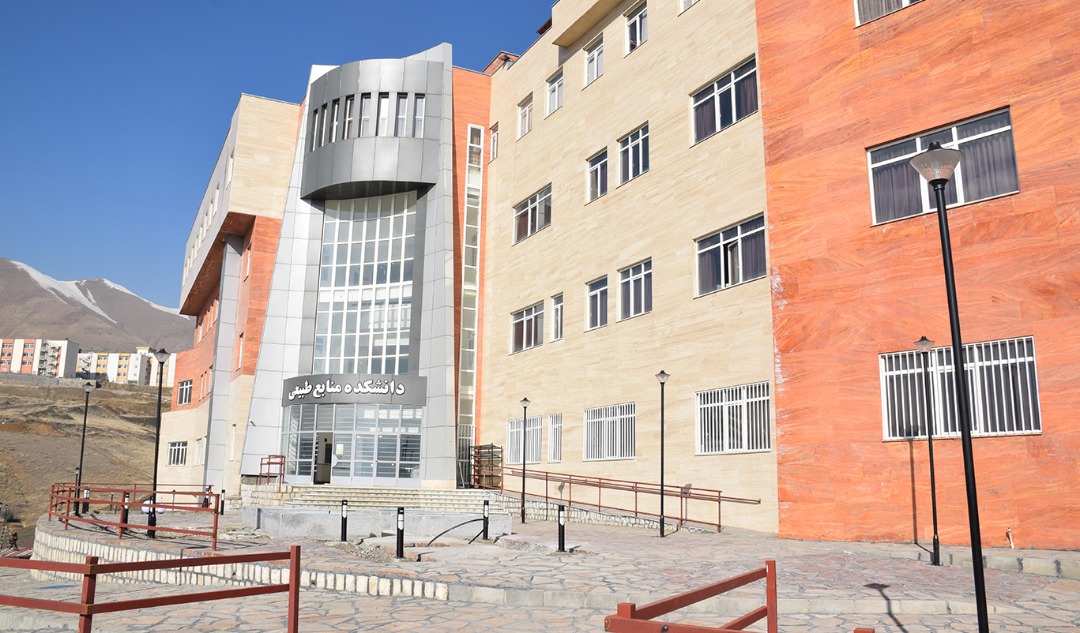
Research Areas of Natural Resources Faculty
| Department | Main Research Areas | |
|---|---|---|
| 1 | Climatology | Climate change, Applied climatology, Agro-climatology, Synoptic climatology |
| 2 | Forestry | Forest biometry, Assessment of the effects of traditional/local management on forest structures, Forest management, Application of ecosystem models and multi-criteria decision-making techniques, Analysis of traditional-social forest management, Dynamics of the Zagros oak forests, Afforestation and forest nursery, Forest tree eco-physiology, Forest tree improvement, Biologic control of pests and diseases in forest ecosystems, Study of forest soils, Litter decomposition, Relationship between vegetation and soil properties, Ecology of forest soils, Forest soil mesofauna and their variation after disturbances in natural and artificial forests, Forest engineering, forest road planning, Application of Spatial Decision Support Systems (SDSS), Geographic Information System (GIS), and Remote Sensing (RS) in forestry
|
| 3 | Geomorphohlogy | Geomorphological studies (rivers and urban systems), Geomorphology and hazardology, Study of karst areas with a focus on caves and surface and groundwater hazards, Kurdistan studies with a focus on geographical issues and environmental research, Geo-diversity and geo-tourism, Tectonic geomorphology, Study of crisis management (passive defense), River geomorphology, Study and monitoring of natural hazards with a focus on landslide surveying and zoning using remote sensing data including hyper-spectral and radar images, Application of remote sensing data and GIS predictive models in various urban locations, Sustainable development and rural planning, Rural tourism and entrepreneurship
|
| 4 | Fisheries | Aquaculture, Fish physiology, Fish population genetics, Ichthyology, Aquatic toxicology, Aquatic animal health and disease, Aquatic nano-biotechnology, Fish genetics and breeding, Aquatic ecology.
|
| 5 | Environmental Sciences | Monitoring of environmental pollutants, Nano-materials, Adsorption and bioremediation, Clean fuels, Biological indicators (bio-indicators), Environmental geochemistry, Trace elements and soil pollutions , Water, air, and food, Land, Soil evaluation and classification, Geo-genic air, Particulate matters, Conservation biology, Wildlife management, Wildlife ecology, Biosystematics studies of wildlife, Wildlife population dynamics, Conservation strategies and management plans, Ecology, Biogeography and conservation of reptiles and amphibians with a focus on endangered species, Human-wildlife conflicts, Population genetics, Application of GIS and RS in environmental studies, Emission of the environmental flow requirements of rivers, Detection of air pollution using different hybrid models, Wildlife habitat evaluation using GIS and RS techniques.
|
| 6 | Rangeland and Watershed Management | Rangeland and Watershed Management (Natural Engineering) is a field that aims to comprehensively examine watersheds in terms of potentials and limitations and provide integrated management of water and soil resources using managerial, biological, technical, and engineering methods. It also involves phytoremediation, knowledge of rangeland ecosystems and the relationships between their constituent implementation and rangeland conservation, exploitation, and remediation. To achieve these purposes, the Department of Rangeland and Watershed Management, Faculty of Natural Resources, University of Kurdistan addresses several areas of research, including surface and groundwater hydrology (modeling, environmental hazards, and application of stable isotopes), water and soil conservation (erosion and sediment modeling and water quantity and quality), carbon sequestration, rangeland plants, rangeland restoration, rangeland measurement and assessment, rangeland ecology, rangeland improvement and development, and analysis of rangeland ecosystems (modeling)
|















